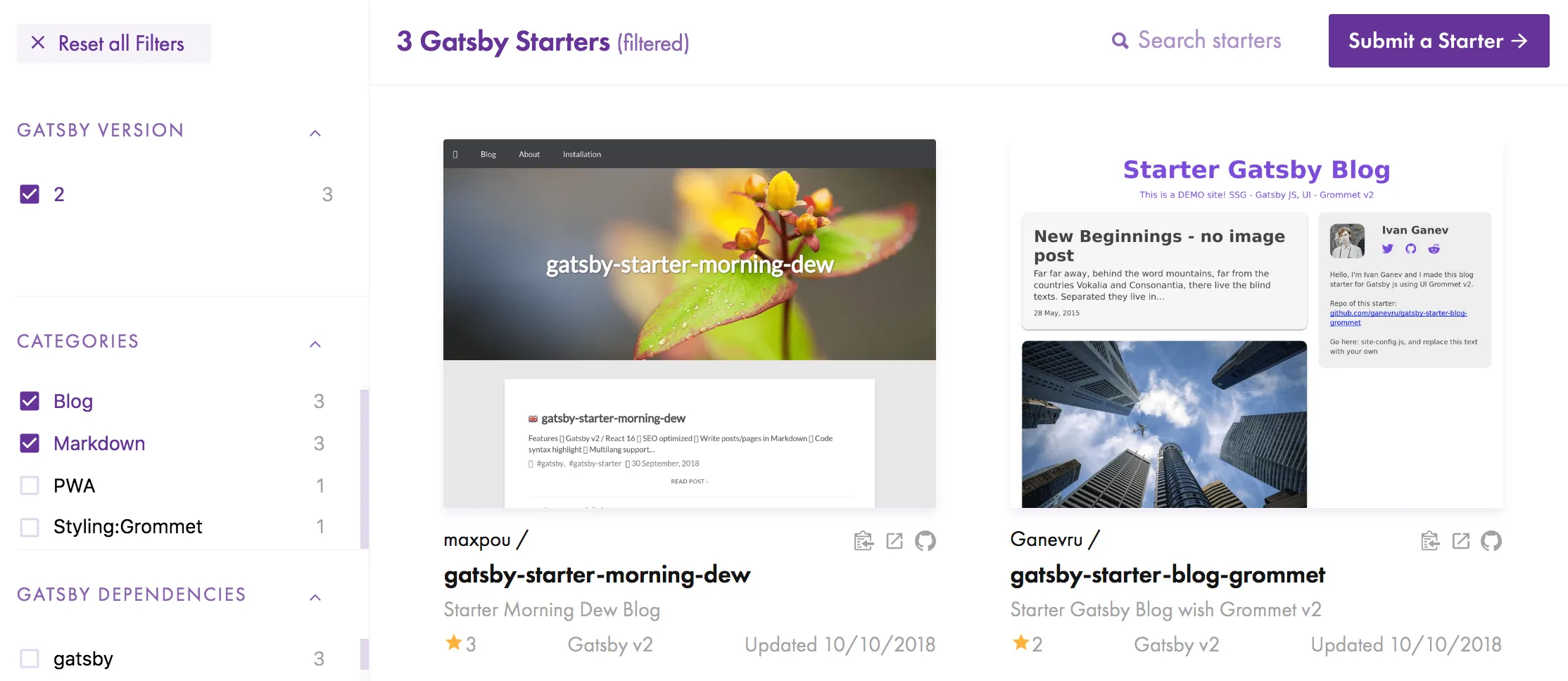
Two months ago, I was in the DublinJS meetup. As usual, the talk I came for, wasn’t the most interesting one. The talk about ember-ghost completely blew my mind. The speaker shows a static generation website using Ember (JavaScript). It seems that Jekyll doesn’t have the had the monopoly anymore!
By using static generation website in JS, I could take leverage of awesome tools like Webpack (hot reload), componentization…
Jekyll pro and cons
I have been running my blog under Jekyll for 3 years. I don’t want to blame this tool, my needs have evolved.
What I like:
- hosted on GitHub for free. The only thing I pay is the domain name maxpou.fr (~6€/year)
- “backend-less”! Everything is fully static. I don’t want to rely on a DB for a blog!
- Simple to use. There’s no over complicated administration panel… well, there’s no administration at all!
- I write my post in markdown in my IDE. Then, I
git commitandgit pushto master to publish my article! - …people can submit PR to fix a typo somewhere (let’s be honest: nobody did 😂).
- The theme I use. I like what @mmistakes did for the hpstr-jekyll-theme!
- it’s easy to “pimp” a theme without any Ruby skills!
- Good performances (lighthouse)
- MIT License

What I don’t like:
- I don’t want to install ruby locally. It’s mandatory to get it when working on site structure;
- Jekyll watch mode is slow, even more with docker (2/3 sec to detect a change + 2 sec to recompile everything 😴)
- Adding plugins is very complicated. Once, I tried to change the syntax highlighting plugin (Jekyll handle markdown to HTML conversion). I spent something like 4 hours, without success. I finally drop this idea…
- Service worker management => ☠️. I lost a lot of hairs when trying to make Workbox working… without success!
🎅 Dear Santa, for my next blog I want…
- Ideally, keep all the thing I like an remove the ones I dislike 😃
- Something easy to install/configure
- Get a static build to deploy on GitHub Pages
- I’m working on a day to day with Vue.js. So, it could be nice if it’s something different: React, Ember…
- If possible, keep my Disqus comments!
- … and something that works beyond the classic “getting started” (i.e. manage pagination, ability to add new feature…)!
🏆 Candidates
Tools I tried:
- VuePress. Good to generate documentation… but there’s currently no support for blogging. Plus I’m already working with Vue.js.
- Ember-Ghost: Looks promising! Unfortunately, I had local issues with Ember or Node. I still don’t know! (shame, I could have asked the maintainer, I know him!)
- GatsbyJS: Gatsby is a React-based, GraphQL powered, static site generator.
🎉 And the winner is… Gastby!
(I hope it’s not a big surprise, it was in the post’s title ;) )
Pros:
- I ❤️ GraphQL. It’s very intuitive! (except when you try to do some custom filters!)
- React is cool. React 16 is even more!
- Looks like Vue.js
- The hot reload is very fast (thanks to Webpack 4)
Cons:
- There is some magic… and I don’t like magic. I’m missing a plain old router to match routes with
pages. Also, the
gatsby-node.jsfile is not immediately obvious. - The starter library is not very consistent. And most of the starters look like “hello world” project.
- Some small issues with cache invalidation
- … and that’s it!!!
If you want to know the difference between Gatsby and Jekyll, there is a comparative table on Gatsby’s website.
Now let’s find the starter:
- gatsby-starter-casper: looks very nice but use the v1 of Gatsby. I want to start with something on the cutting edge of technology.
- gatsby-starter-blog: a very minimalist blog. Far away from what I want.
- …start from scratch?!
I finally opt with the last 2 solutions.
🎊 Introducing gatsby-starter-morning-dew
Yes! I did it! I Created my own starter!!! I called it gatsby-starter-morning-dew. Why? Well, check out the list of available starters:

At the moment, there are only 3 available starters for blogging in markdown (the first one is mine 😎). So, adding an extra one could be a real benefit for the community!
Before migrating this blog to a new one, I wanted to release the starter first. It took me two months to get something good. And now I’m very happy with the result.

The full list of features is available on the starter’s README. In a nutshell:
- Markdown: I still write my post and pages in markdown. There is syntax highlighting syntax colour and easily configurable.
- Configuration: I don’t want people to worry about the internals. That’s why almost everything is configurable through a JS config file!
- CSS: Because I don’t want to rely on a framework, I wrote 100% of the CSS! (…I also stole fragments 😇)
- Mobile friendly&PWA. I felt guilty. I deliver a few talks about Progressive Web Apps and my own website wasn’t PWA compliant… shame! solved!
- Clear separation between data (posts) and application structures (components, css)
- … and many other things!

🗺 What’s next?
I have a lot of ideas for the next:
- manage pagination: 25 articles to list is a bit too much for a hello page.
- css-in-js: To be honest, I miss the Vuejs’s
<style lang="scss" scoped>tag. I saw different React approaches and I like none of them. Maybe if I try one, I’ll change my mind? Let see… - enable RSS feed;
- Markdown syntax checker. At the moment, it’s hard to spot a missing header in a markdown file. And the message in the console isn’t very helpful;
- clean up the code.
Show me the code!
Here you go: https://github.com/maxpou/gatsby-starter-morning-dew
About the author

Hey, I'm Maxence Poutord, a passionate software engineer. In my day-to-day job, I'm working as a senior front-end engineer at Orderfox. When I'm not working, you can find me travelling the world or cooking.
Follow me on BlueskyRecommended posts

1. Split your application into completely isolated modules. 2. Consider micro-frontends architecture. 3. Don't put everything in the Vuex Store

I've been maintaining a massive Vue.js codebase for the last 3 years. Here are 9 lessons I've learned along the way.


